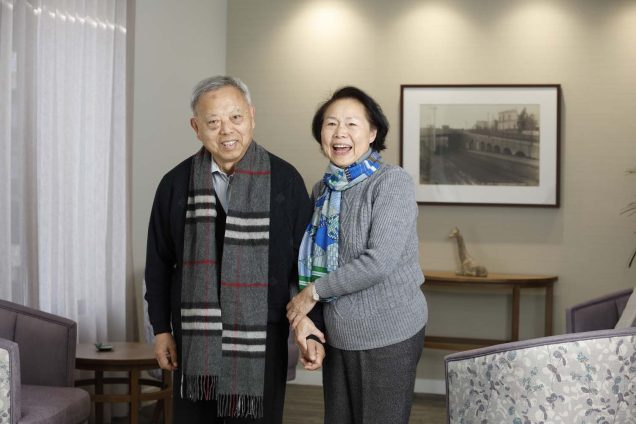Dementia Care
A diagnosis of dementia brings with it a range of concerns, considerations and emotions. Uniting AgeWell supports people and their families to live well with choice and peace of mind along their journey with dementia.
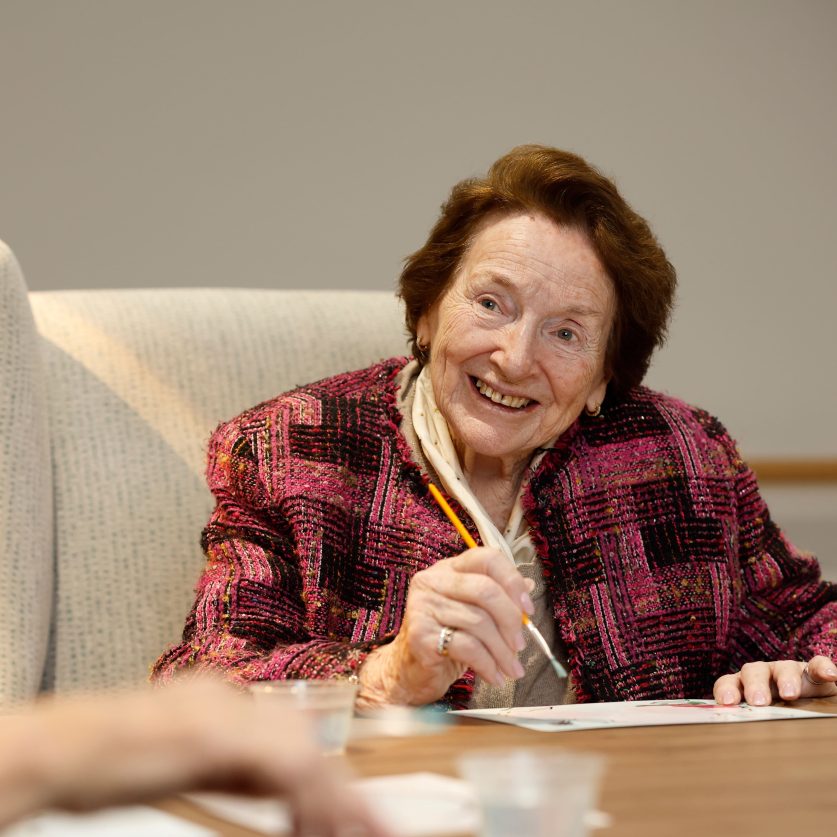
Overview
Uniting AgeWell provides a range of dementia care programs both in the community and at our residential care communities.
Our approach
How we support customers with dementia
We recognise every individual living with dementia has their own needs and experience. We are committed to excellence in the delivery of the best possible care for people living with dementia-related illness.
Guided by the Uniting AgeWell Dementia Framework and model of care, our dementia trained staff aim to maximise quality of life every day.
Home care services
Our home care services can support people with dementia to live safely and independently. offer a range of home care services to support you to live safely and independently with dementia. From personal care and domestic support to companionship and assistive technology, you can fully personalise your home care services.
Respite care
Our dementia-specific respite programs are designed to enrich the experience of those with dementia through creativity and the easing of symptoms while providing a break to caregivers. From social connections day programs to residential respite, there are a number of ways to get support.
Residential care
We work in partnership with residents, families, carers and other stakeholders to provide person-centred care.
Our residences offer a dementia-friendly environment including sensory gardens and the use of smart technology to enhance the independence and safety.
Care you can trust
From residential to in-home care we tailor our services to suit your individual needs.
From creative outlets such as aquapainting and music therapy to interactive technology such as the Tovertafel, dementia-specific social groups and calming outdoor sensory spaces, we offer a broad spectrum of dementia support.
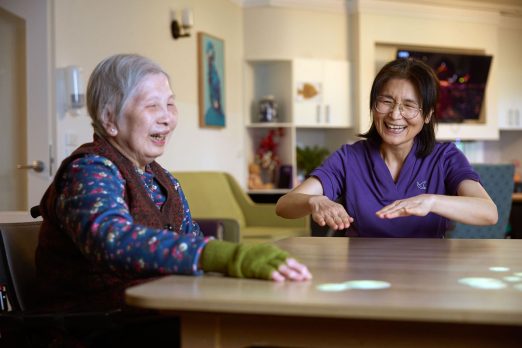
16 Sep 2025
Ensuring no one is doing it alone!
It’s Dementia Action Week (15-21 September) and the theme this year is “Nobody can do it alone.”
News
Community Home Support Programs
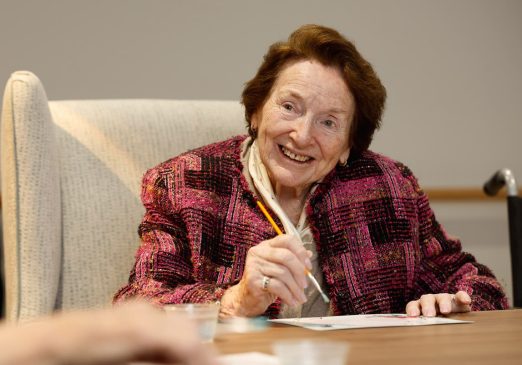
16 Sep 2025
Enhancing quality of life
Uniting AgeWell offers support to those living with dementia – through support in the home and in residential settings.
News
Home and Community
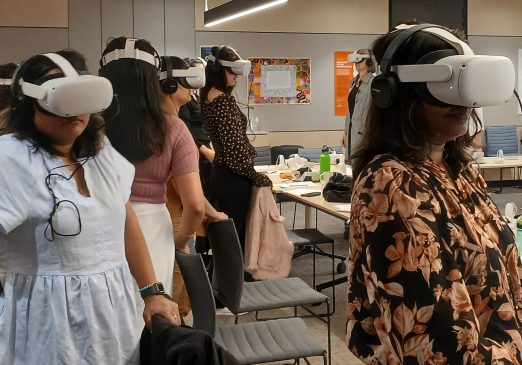
16 Sep 2025
Education is key
Educating staff is key in the ongoing implementation of the Uniting AgeWell Dementia Framework.
News
Staff stories
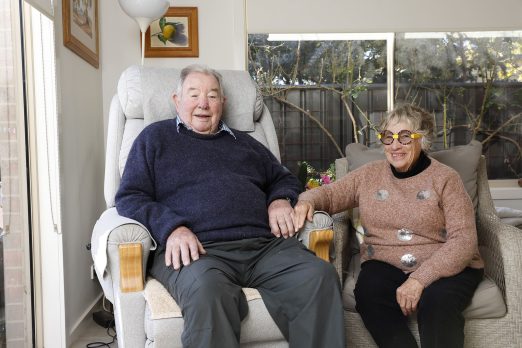
16 Sep 2025
Sharing the care – understanding the dementia journey
Kay Francis likes to pop into the Uniting AgeWell office in Castlemaine to say hello to the staff.
News
Home and Community
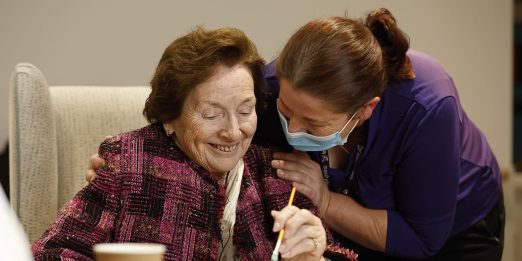
18 Sep 2023
Meeting the dementia challenge
Dementia is proving one of the biggest challenges facing the aged care sector. To address the extent of the challenge, Uniting AgeWell is progressively implementing an organisation-wide response detailed in its Dementia Framework and Action Plan, which was developed in partnership with esteemed mental health expert Allan Woodward and released in May 2021.
News
Organisational
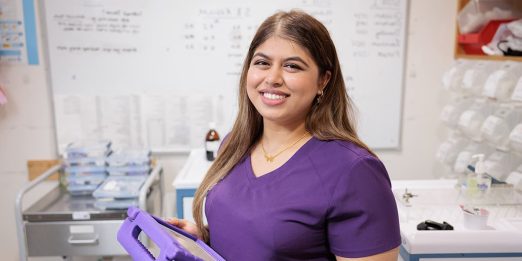
18 Sep 2023
The dementia learning revolution
t’s as big a commitment as Uniting AgeWell can make. Every single member of our, almost 4,000 workforce, across Tasmania and Victoria will undertake mandatory dementia learning to help them provide the best possible care and support to the growing number of clients and residents living with dementia – and their families.
News
Organisational
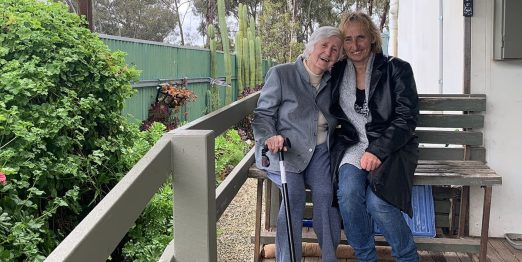
18 Sep 2023
The dementia journey – still telling it like it is
Much has been written about the dementia journey. But what is it like living it? For Dementia Action Week we revisited Bendigo mother and daughter, Mary and Liz Graco who are updating us on their story in the hopes of helping others in similar situations.
News
Home and Community
Understanding dementia
Learn more about dementia and how it can present in everyday life.
What is dementia?
What does dementia look like in everyday life?
How to cope with the behavioural changes of dementia?
Where can I access further support and information?
Music For David
Music For David: Music therapy
Music For David is Uniting AgeWell’s music therapy program that aims to provide our clients with dementia short-term relief through music.
Participants in the program are provided with individually curated playlists that may help to ease symptoms of dementia, including restlessness and agitation.
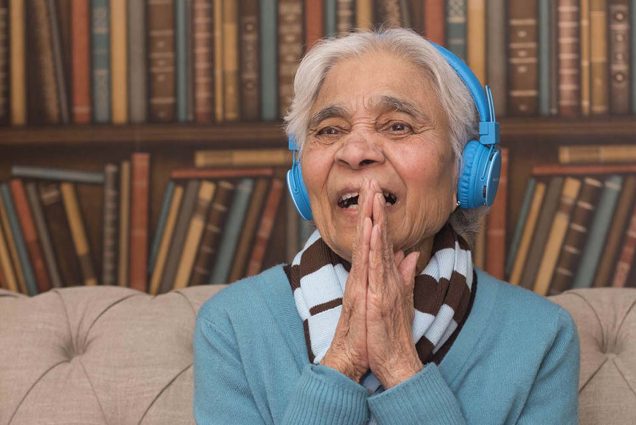
Sharing the Care
Sharing the Care: a support kit for families
Sharing the Care is a support kit designed to help family carers and the person they care for make the transition to residential care a little easier.
The kit guides you through what to expect and how to cope with this significant life change, from emotional responses and personal wellbeing to settling the resident into their new home. It provides practical advice and easy access to the information and supports you might need during this time of transition.
